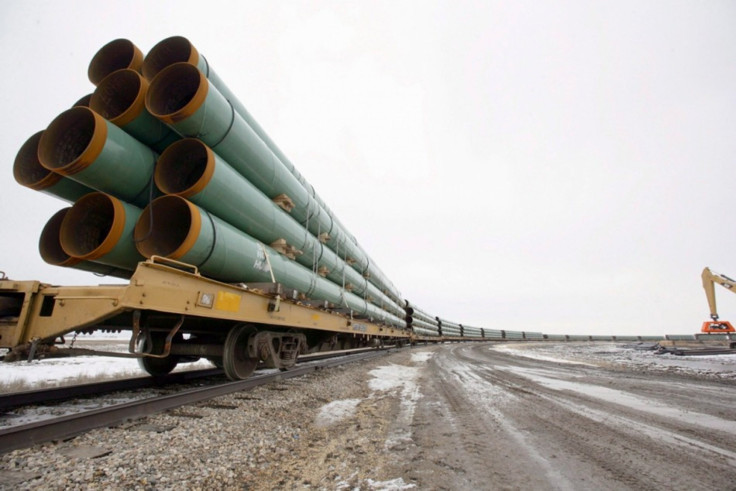TransCanada (TRP) Getting Ahead Of Itself? Energy Giant Spent $1 Billion Worth Of Pipeline For The Keystone XL Project That Might Not Get Approved

TransCanada Corporation (NYSE:TRP), which has been contracted to build the controversial Keystone XL pipeline to transport crude oil from Alberta, Canada, to refineries on the U.S. Gulf Coast, is losing money from storing and maintaining more than $1 billion worth of pipes for the long-delayed project, the Canadian Institute of Mining magazine reported in its October issue.
The $7 billion, 1,179-mile Keystone XL is intended to transport two types of crude oil from Alberta, North Dakota and Montana, passing through the nation’s pipeline hub in Cushing, Okla. Many refineries in the United States' Midwest and in Canada are at capacity, so oil producers are looking to refineries in the South.
Proposed in 2005, the project has repeatedly been delayed, and TransCanada is awaiting a presidential permit to allow the pipeline to cross the U.S.-Canada border.
The project is controversial because environmental groups say extracting oil from the tar sands of Alberta is a more carbon-intensive process than conventional crude production. Proponents say the benefits of the pipeline -- namely, reducing America's dependence on oil from hostile, unstable countries in the Middle East and elsewhere -- outweigh the environmental risks.
President Obama has delegated the U.S. State Department to determine whether the pipeline is in the national interest. However, Obama has the final say, and he's likely to make his decision in early 2014.
In the meantime, TransCanada is preparing the groundwork for the pipeline to begin construction despite not having a presidential green light.
“In the past, the normal regulatory review process for a project like this was between 18 and 24 months,” said Davis Sheremata, a TransCanada spokesman. “As a result, we often needed to commit to the production of materials to make sure that things were available in a timely fashion.”
The pipelines, valves and pump stations were ordered years ago because TransCanada had anticipated a normal permit process without many delays.
Approximately half of the pipe has been used for the second portion of the project, the Keystone Gulf Coast pipeline, which will bring more than 700,000 barrels of oil a day from the Cushing hub to Texas refineries.
The remaining pipes are sitting in a storage facility in Little Rock, Ark., whose space is equivalent to 80 acres.
So far, TransCanada has spent about $1.9 billion on Keystone XL, half of which went toward manufacturing the steel pipe. If the project isn't approved, the Canadian company will likely have to sell more than 600,000 tons of pipe at a discount.
© Copyright IBTimes 2024. All rights reserved.





















